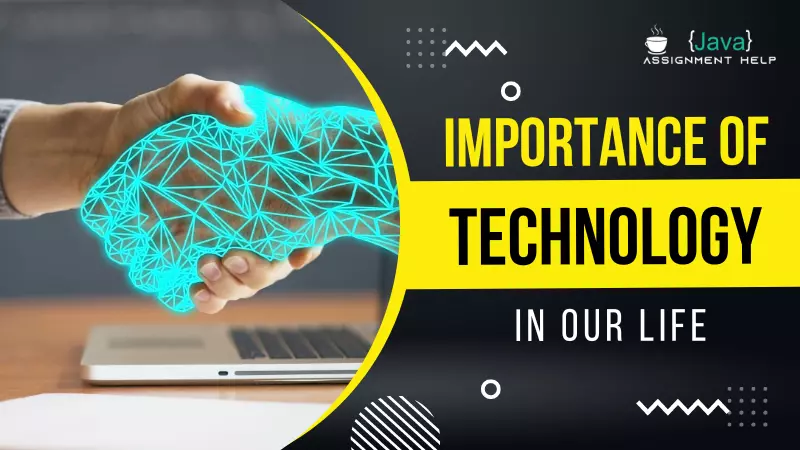Introduction: Technology has significantly impacted our lives, work, and interactions in the 21st century, enabling unprecedented connectivity and control over our surroundings. This article explores the multifaceted ways Technology exerts its influence on our surroundings.
The Digital Transformation
The digital revolution has brought about an era of unparalleled convenience and connectivity. Smart devices, such as smartphones, tablets, and wearable tech, have become extensions of ourselves. With just a few taps, we can communicate with people across the globe, access information, and manage various aspects of our lives. This digital transformation has led to an interconnected world where information flows seamlessly, enabling us to control and access an array of services with unprecedented ease.
Smart Homes and the Internet of Things (IoT)
Our homes are no longer just shelters; they’ve become smart hubs controlled by technology. The Internet of Things (IoT) has enabled devices within our homes to communicate and collaborate, offering us a level of convenience that was once unimaginable. From adjusting the thermostat and turning off lights remotely to managing security systems with a smartphone, technology has empowered us to control our domestic environments with a few taps on a screen.
The Influence on Work and Business
The business landscape has also undergone a significant transformation due to technology. Automation, artificial intelligence, and machine learning are revolutionizing industries by streamlining processes, increasing efficiency, and reducing human intervention. Tasks that were once time-consuming are now executed within seconds, allowing businesses to focus on innovation and growth. Additionally, remote work technologies have altered the traditional office setup, offering employees greater flexibility in managing their work and personal lives.
Healthcare and Biotechnology
Technology’s impact on the healthcare sector is nothing short of revolutionary. Medical diagnoses are becoming more accurate and efficient with the integration of AI-powered tools. Telemedicine has enabled patients to consult with doctors from the comfort of their homes. Moreover, wearable health devices can monitor vital signs in real time, providing valuable insights into our well-being. Through technology, we have gained greater control over our health and wellness.
The Power of Data and Analytics
The vast amount of data generated daily has paved the way for data analytics to play a significant role in decision-making processes. Businesses and governments utilize data-driven insights to understand trends, consumer behavior, and societal needs. This level of understanding enables us to control resources and services more effectively, resulting in better outcomes for individuals and communities.
The Digital Entertainment Landscape
Entertainment has also been profoundly influenced by technology. Streaming services, online gaming, and virtual reality experiences offer us a new level of engagement and control over our leisure time. We can curate our entertainment preferences and access content tailored to our tastes, enhancing our overall experience.
Conclusion
In a world where technology is intertwined with every facet of our lives, its influence is undeniable. From the convenience of our smart homes to the insights gained from data analytics, technology has given us unprecedented control over the world around us. However, as we embrace these advancements, it’s crucial to strike a balance between the benefits of technology and the preservation of genuine human interactions. By harnessing technology’s potential while remaining mindful of its impact, we can create a future where control and connectivity coexist harmoniously.
1) How has technology transformed our daily routines?
Technology has revolutionized our daily routines by providing us with smart devices that offer connectivity, convenience, and control. From smartphones that keep us connected to the world to smart home systems that manage our living spaces, technology has seamlessly integrated into our lives.
2) What is the Internet of Things (IoT) and how does it contribute to technology’s control over our surroundings?
The Internet of Things (IoT) refers to the network of interconnected devices and objects that can communicate and exchange data. It contributes to technology’s control by enabling us to remotely manage and monitor various aspects of our lives, such as home appliances, security systems, and even healthcare devices.
3) How is technology changing the business landscape?
Technology is reshaping the business landscape through automation, artificial intelligence, and data analytics. These tools enhance efficiency, optimize processes, and offer insights that lead to better decision-making. As a result, businesses have more control over their operations and strategies.
4) What impact does technology have on healthcare and personal well-being?
Technology has a profound impact on healthcare, providing accurate diagnostics, telemedicine options, and wearable health devices that monitor our well-being. This empowers individuals to take control of their health by accessing information and tools that were previously unavailable.
5) Are there any concerns about the growing influence of technology?
Yes, while technology offers numerous benefits, concerns include issues related to privacy, security, and the potential for excessive reliance on technology. Striking a balance between technology’s benefits and potential drawbacks is essential to ensure that we maintain control over our lives and preserve genuine human interactions.


